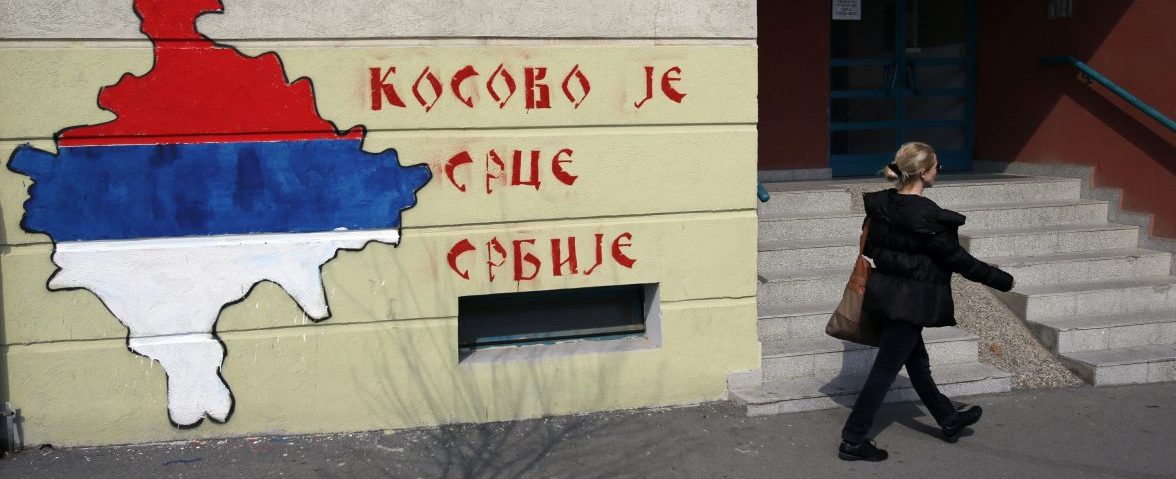The 20th anniversary of the NATO bombing of Yugoslavia passed almost unnoticed in the West. The elites and general public there do not understand that Yugoslavia’s tragedy has become a major formative experience for Russia’s relations with the West. NATO’s intervention in Yugoslavia was a turning point that ushered in a period of conflict in relations between Russia and the West.
The NATO operation in Yugoslavia created a deep dividing line between Russia and the West and aggravated the security problem of Europe. NATO’s unilateral actions have shown that the West is ready to act without consulting the UN and to disregard the opinions of permanent UN Security Council members. NATO has shown that it is not only a political organization with a humanitarian mission, but also an effective military bloc that deems it possible to take unilateral decisions regarding peace and war. Russia’s contribution to ending hostilities through talks with President Slobodan Milosevic did not prompt the West to respect Russia’s interests in the region. Moreover, the West soon forgot about Russia’s assistance.
The Yugoslav crisis has had a divisive influence on European security. Serbia has been isolated from the continent’s political organizations and has ended in a strategic impasse. It can ill afford to become part of the Western institutions and has to take into account a possible repetition of the 1999 scenario when making military plans. At the same time, the Serbian minorities scattered throughout the neighboring countries are a source of political instability for Belgrade, which has to take their interests into account when making political plans.
Another element of this divisive experience is the formalization of the conceptual difference in the Russian and Western approaches to conflicts. The Yugoslav crisis has settled the dilemma of choice between stability and freedom in the fragile or conflict-prone regions. Russia and the West acted from diametrically opposite precepts. The West believed that stability and security are reliably guaranteed and are not in short supply, and so in part, these values can be sacrificed to freedom, even if it is the preferred conflicting sides and not all parties that will enjoy this freedom. Russia thought that there is never enough stability and security and that they must be maintained at all costs because their erosion can take a heavier toll than the maintenance of the status quo. Russia rejects ideological arguments, including the arguments of freedom and civil rights, if actions in accordance with them can take a heavier toll.
Ultimately, NATO ended the 1999 conflict in Yugoslavia in favor of Kosovo Albanians. It did so by destroying the military governance centers in Serbia and the infrastructure in Belgrade and everywhere else around the country. But the dispute between Albanians and Serbs has not been settled even despite NATO’s military superiority.
The analysis of more constructive non-military scenarios suggests that Kosovo Albanians could be given broad autonomy within a politically inclusive Yugoslavia where Kosovars have their representatives in the country’s authorities. The resources of diplomacy as a means of forcing Belgrade to do this were not exhausted in 1999. However, even though NATO did a great deal to settle the Kosovo crisis, it stopped short of settling it. It could have used the post-war Germany model that included occupation, new borders, exchange of population, and a new international regime guaranteed by great powers. But it did not do this.
Serbia and Kosovo are living in suspended animation, when even the recognition of Kosovo’s independence by many European countries does not prevent major problems in Pristina’s relations with Belgrade and other neighbors. This has also created a security vacuum in that part of the Balkans. Serbia is standing alone against its problems, forced to act as an autonomous player which cannot disregard the problems of Serbian minorities in the neighboring countries, primarily in Kosovo, and which cannot ensure its own security unassisted. It cannot rely on NATO, which Serbia’s National Security Strategy defines as a threat. This is why Serbia is looking for a solution in relations with non-regional forces – Russia and China.
In light of the high ethnic tensions that sometimes lead to violence in the region, the scenario of a local or even regional conflict cannot be ruled out. Many people in the West believe that Serbia will gradually lean more towards the West and will have to join Western institutions, but life has so far failed to confirm this belief. The ruins of government buildings in Belgrade are a bitter reminder of Serbia’s defeat 20 years ago.
The 1999 operation against Yugoslavia and the subsequent recognition of Kosovo’s independence have not only aggravated regional security problems but have also become a turning point in Russia-West relations, leading to a new round of confrontation between them. However, that NATO operation was only possible because Russia was relatively weak then. Today, Russia would not have allowed this to happen.
Original publication valdaiclub.com












